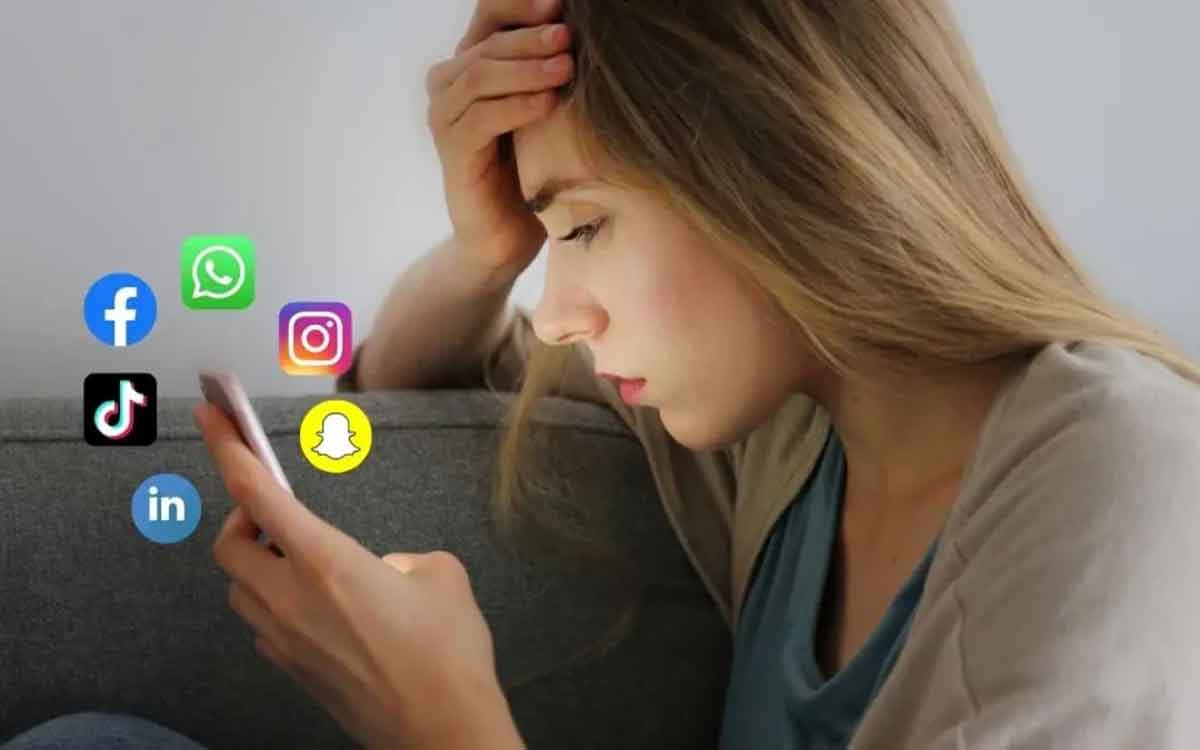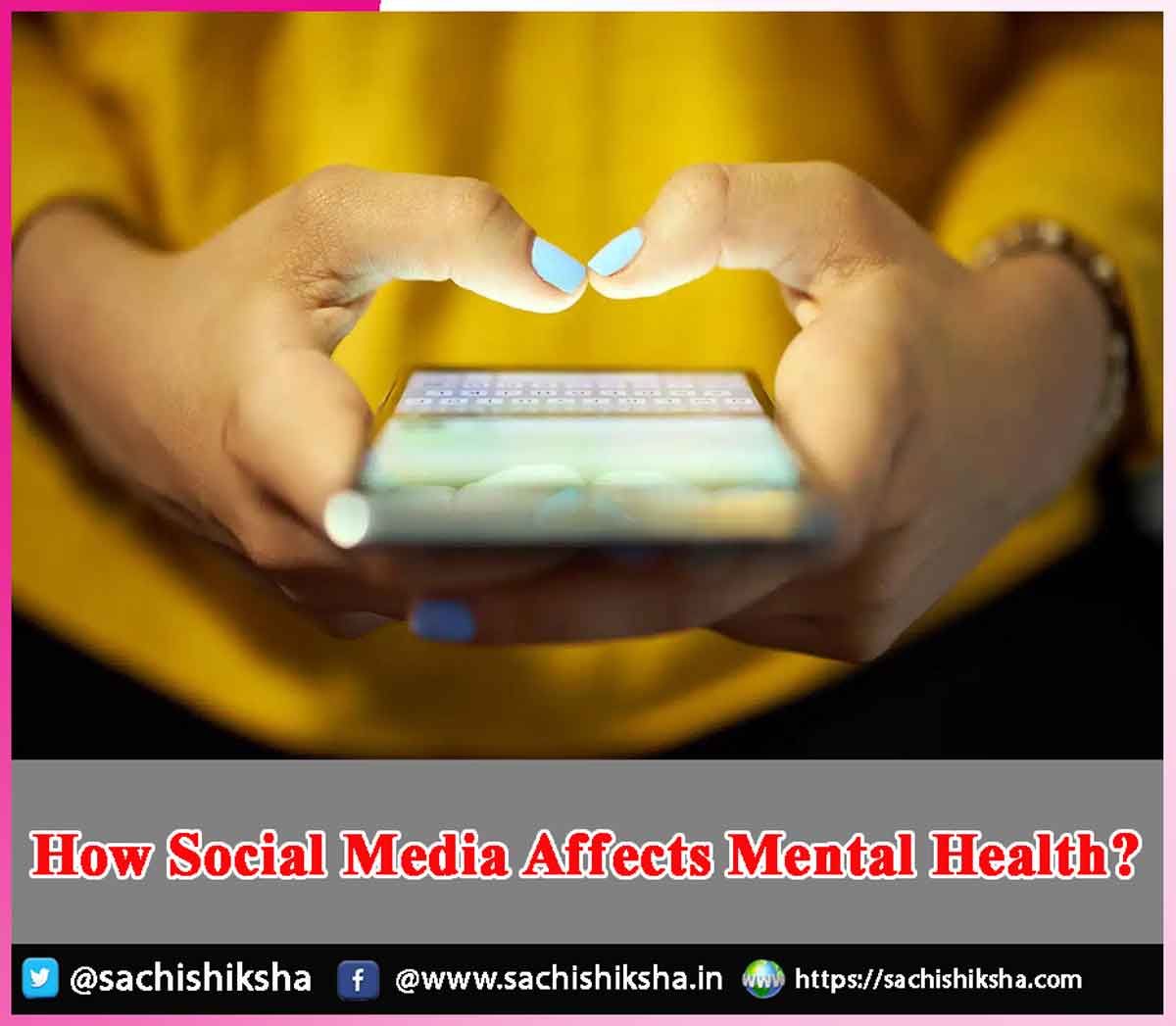How Social Media Affects Mental Health?
Introduction: In the past two decades, social media has revolutionized the way people communicate, connect, and consume information. Platforms like Facebook, Instagram, Twitter (now X), TikTok , Snapchat, and LinkedIn have become integral to our daily lives. For billions around the world, social media is not just a tool—it’s a lifestyle.

Table of Contents
The Double-Edged Sword of Social Media
Social media is a powerful tool. On one hand, it fosters community building, self-expression, and access to information. On the other, it can lead to feelings of inadequacy, anxiety, depression, and isolation. This duality means that the impact of social media on mental health depends on several factors—such as the platform used, time spent, the nature of engagement, age, personality traits, and existing psychological vulnerabilities.
Positive Effects of Social Media on Mental Health
Before diving into the negative effects, it’s important to recognize the positives:
- Connectivity and Social Support: The social media enables people to stay connected with friends and family, especially during times of physical separation (like during the COVID-19 pandemic). For people struggling with mental illness, online communities and support groups can provide emotional support, encouragement, and shared experiences
- Increased Awareness and Education: Platforms are increasingly being used to spread awareness about mental health issues. Influencers, therapists, and organizations use social media to destigmatize mental health, share coping strategies, and offer educational content.
- Creative Outlet and Self-Expression: For many, social media provides a platform for creativity and self-expression. Whether it’s art, music, writing, or humor, sharing one’s talent or thoughts can be therapeutic and boost self-esteem.
- Access to Resources: The social media offers quick access to mental health resources, crisis helplines, and professional services. People can now find therapists, book online consultations, and even access mental health apps through social platforms.
The Negative Impact of Social Media on Mental Health
Despite the potential benefits, the negative consequences of social media on mental well-being are becoming more evident and widespread.
Social Comparison and Low Self-Esteem:
One of the most significant issues with social media is the pressure to present a curated, often unrealistic, version of life. Seeing others post about their perfect vacations, relationships, bodies, and lifestyles can trigger unhealthy comparisons.
According to a 2017 study published in Computers in Human Behavior, frequent use of Facebook was linked to depressive symptoms due to negative social comparison. People often compare their behind-the-scenes with others’ highlight reels, leading to feelings of inadequacy, jealousy, and low self-worth.
Fear of Missing Out (FOMO):
FOMO refers to the anxiety that others are having rewarding experiences without you. Social media platforms exacerbate this feeling by constantly showcasing what others are doing.
FOMO can lead to compulsive checking of notifications and feeds, disrupting sleep and increasing stress levels. It often fuels a cycle of overuse and emotional distress, especially in adolescents and young adults.
Addiction and Time Displacement:
Social media platforms are designed to be addictive. Features like infinite scrolling, likes, shares, and algorithm-driven content loops keep users engaged—often for hours at a time.
This overuse can displace real-life activities that are vital for mental health, such as physical exercise, face-to-face interaction, hobbies, and adequate sleep. A 2018 study from the University of Pennsylvania showed that limiting social media use to 30 minutes a day significantly reduced symptoms of anxiety, depression, and loneliness.
Cyberbullying and Online Harassment:
One of the darkest aspects of social media is cyberbullying. Unlike traditional bullying, cyberbullying can be relentless and follow victims everywhere through their devices.
Victims of online harassment often suffer from anxiety, depression, and suicidal thoughts. Adolescents, in particular, are highly vulnerable, and many have reported declining mental health due to mean comments, exclusion, or shaming on social media.
Sleep Disruption:
Excessive use of social media—especially before bed—can interfere with sleep quality. Blue light exposure from screens suppresses melatonin production, making it harder to fall asleep. Moreover, emotional engagement with content (whether exciting, upsetting, or addictive) overstimulates the brain. Sleep deprivation is closely linked with mental health issues like depression and irritability.
Validation Dependency and Anxiety:
Many users become emotionally dependent on likes, comments, and shares for validation. This external measure of approval can become a psychological crutch, where self-worth is tied to online feedback. When a post doesn’t get the expected attention, it can trigger anxiety, self-doubt, and even depressive thoughts. This need for validation fosters anxiety and discourages authentic self-expression.
Vulnerable Populations and Impact Severity
While anyone can be affected by social media’s influence, certain groups are more susceptible:
- Teenagers and Adolescents: Their brains are still developing, and peer validation is highly important. They are more likely to experience FOMO, anxiety, and cyberbullying.
- People with Preexisting Mental Health Conditions: Individuals already battling depression or anxiety may find their symptoms exacerbated by social media use.
- Women and Marginalized Communities: Women often face body shaming, harassment, and unrealistic beauty standards, which can lead to body image issues and eating disorders. Marginalized groups may also face discrimination online.
Psychological Theories Behind the Impact
Several psychological concepts explain how and why social media affects mental health:
- Social Comparison Theory: It suggests that people determine their worth based on comparisons with others. Social media amplifies this through curated content.
- Operant Conditioning: Likes and notifications act as rewards, reinforcing addictive behavior patterns.
- Self-Determination Theory: Humans need autonomy, competence, and relatedness. Social media can either satisfy or thwart these needs depending on usage patterns.
Managing the Impact: Strategies for Healthy Use
While it’s impractical to abandon social media entirely, adopting mindful practices can protect mental health:
- Set Time Limits: Use app settings or external tools to track and limit screen time. Allocate specific times of the day for social media and avoid usage before bedtime.
- Curate Your Feed: Unfollow or mute accounts that promote negativity or unrealistic standards. Follow accounts that encourage positivity, mental health awareness, and inspiration.
- Engage Actively, Not Passively: Passive scrolling is linked to increased depression. Instead, engage meaningfully—comment, share, and interact with others consciously.
- Digital Detoxes: Taking regular breaks from social media, even if just for a weekend, can reset habits and improve clarity.
- Seek Support: If social media use is affecting your mental health, consider speaking with a therapist or counselor. Many specialize in digital-age mental health challenges.
Conclusion
Social media, like any powerful tool, comes with both benefits and drawbacks. It has redefined human interaction and created unprecedented opportunities for connection and expression. However, its overuse—or misuse—can negatively impact mental health, contributing to issues like anxiety, depression, loneliness, and sleep disturbances.
Awareness is the first step. By understanding the psychological dynamics at play and adopting healthier digital habits, individuals can harness the positive aspects of social media while safeguarding their mental well-being. In an increasingly digital world, striking that balance is not just important—it’s essential.















































